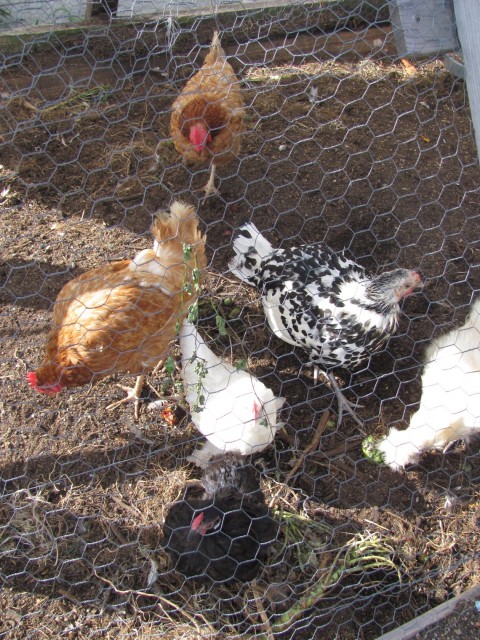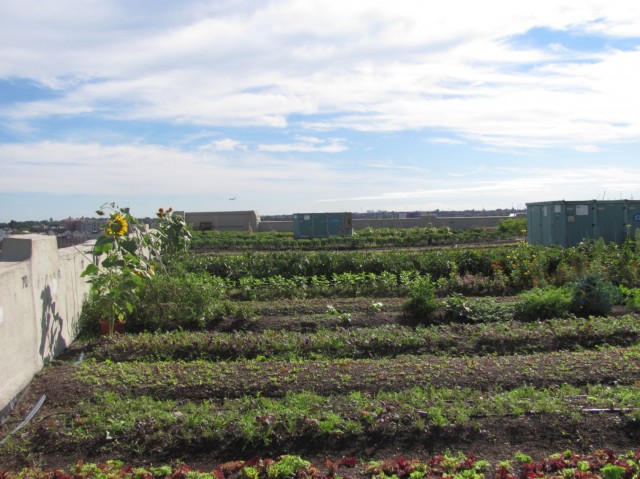
37-18 Northern Boulevard in Long Island City looks like any other old industrial warehouse turned modern. But on top of the six-floor building sits Brooklyn Grange, a massive rooftop farm home to a few not so ordinary rooftop finds: rows of kale, swiss chard, hot peppers, a large compost pile, chickens and honey bees.
As the largest soil rooftop farm in the world (the second largest rooftop farm is its sister farm at the Brooklyn Navy Yard), and certainly the largest rooftop farm in New York City, there was no shortage of interest among school and youth groups to visit the farm shortly after its opening in May 2010. The reaction to the now three-year-old farm was perhaps unexpected; the number of schools and youth organizations that requested field trips and gardening workshops at the farm quickly overwhelmed the farm’s small staff. To meet the demand, Brooklyn Grange partnered with City Growers, a non-profit that strives to “connect urban communities with agriculture, food and environment through farm education.”
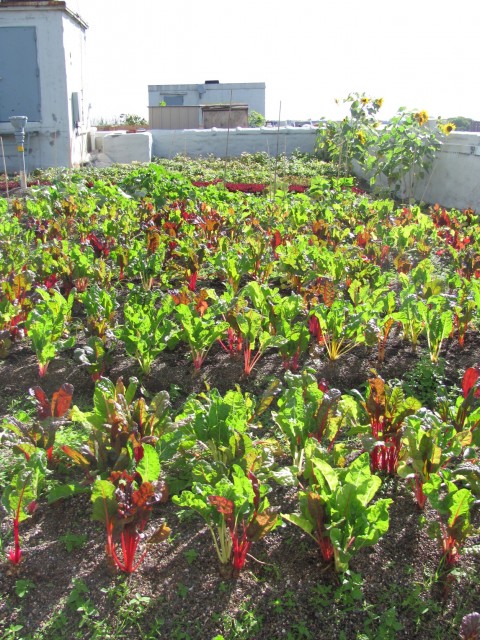
Now in its second year, City Growers offers educational workshops for pre-K through twelfth graders. Operating on both farms at the Brooklyn Navy Yard and in Long Island City, City Growers’ staff is relatively small. Director Cara Chard, who has extensive experience teaching urban agriculture to youth, works alongside two other City Grower employees to conduct all of the farm education activities on the farm. Together, they have created a curriculum that teaches students about predicting crop growth, food systems, seeds and herbs (content accessible here). The curriculum encourages interactive, hands-on activities. By the farm’s beehive, students learn about the role of honey bees in the pollination process. And in the dirt, they learn about the challenges of maintaining a 43,000 square foot rooftop garden and the farm’s 40 different varieties of tomatoes.
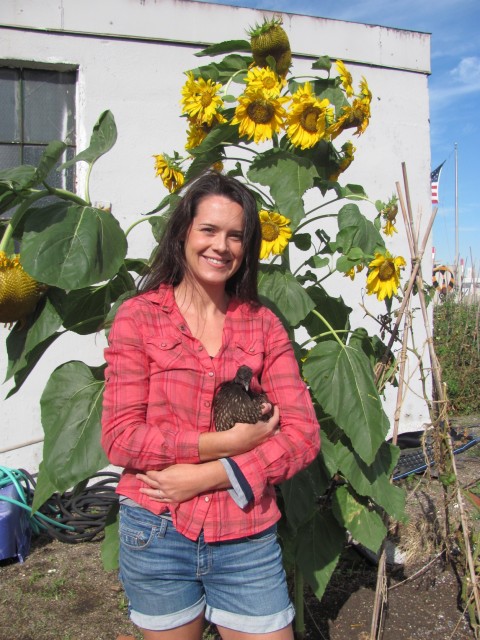
Director of City Growers, Cara Chard, with one of the farm’s several chickens
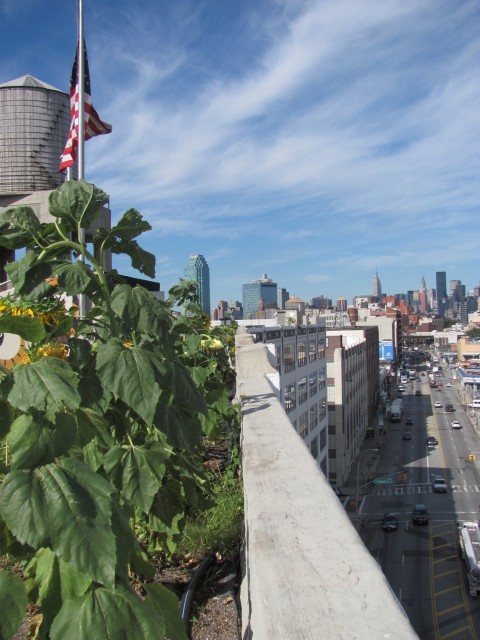
This summer, a group of about fifteen high school students interned at the farm and had the opportunity to teach younger students about composting and planting. According the Chard, the workshops were “an excellent exercise in improving the public speaking skills and self-confidence for the interns.” The workshops follow the logic that by introducing urban youth to rooftop farming, a culture of sustainability, appreciation for local food and a deeper understanding of our food system will follow.
City Growers does not stand alone in its mission to educate youth about urban agriculture. Many other New York City public schools and organizations have participated in a like-minded mission to empower and teach youth about our food system, through shovel and soil, in community gardens and atop rooftop farms.
For now, Chard says that the biggest challenge of running City Growers continues to be accommodating all of the school requests to visit the farm. But behind all of these requests is perhaps a more revealing sign: The rise in interest in the farm is very much a testament to how urban agriculture has recently transformed into a hot topic now implemented in many elementary, middle and high school curriculums throughout New York City. And for City Growers, that may mean extending its reach beyond the two farms that they currently operate on. Says Chard, “We see rooftops as completely underutilized spaces with unbounded potential to contribute to the common good. We hope to establish rooftop farms on schools, hospitals, and public housing developments for educational purposes.” Beginning with the pioneering farms in Brooklyn and Queens, if rooftop farming spreads as steadily as demand seems to suggest, the city’s skyline could begin to have a farmline.
(Photos: Jennifer Davis)
